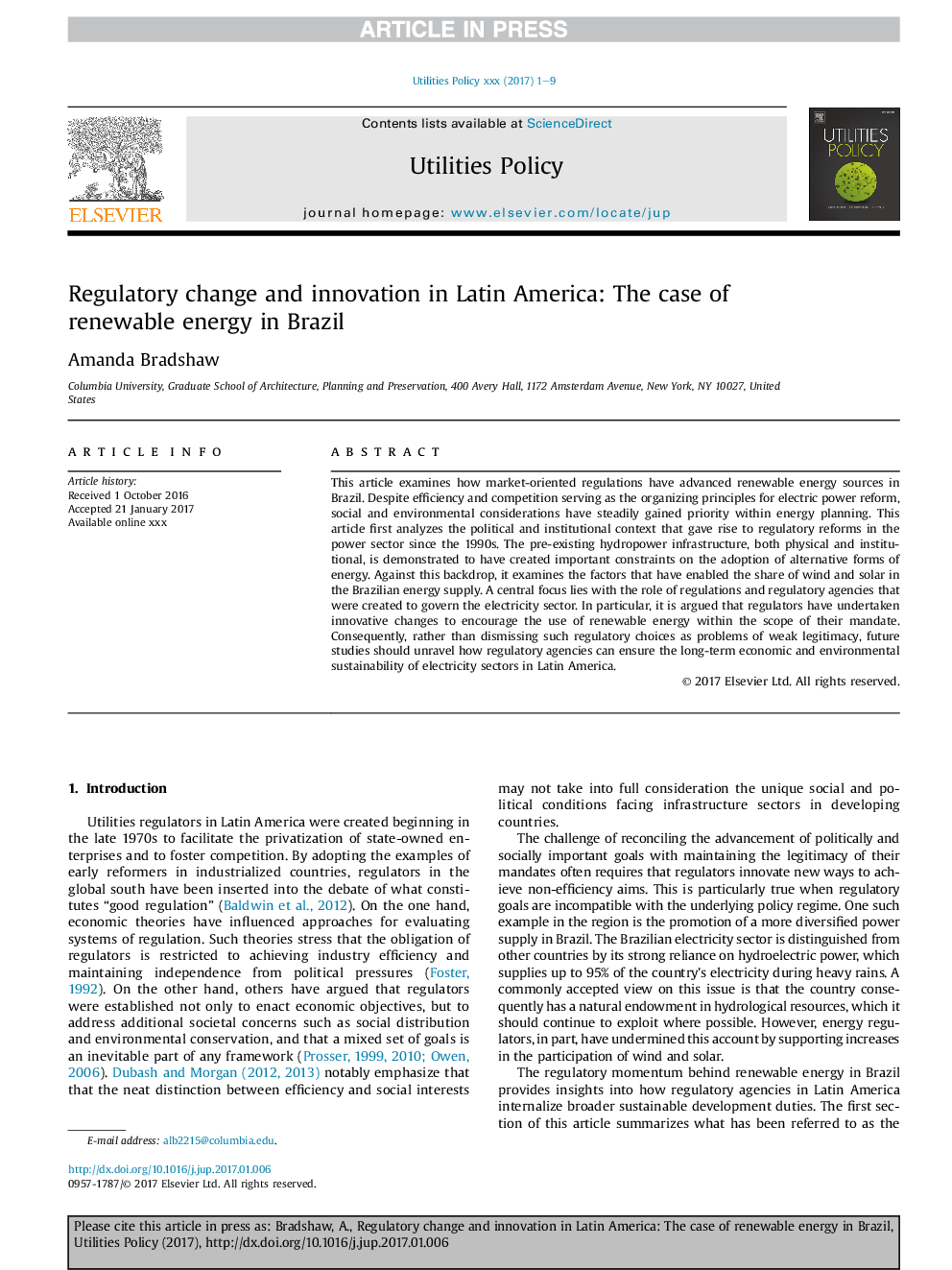| Article ID | Journal | Published Year | Pages | File Type |
|---|---|---|---|---|
| 7411414 | Utilities Policy | 2017 | 9 Pages |
Abstract
This article examines how market-oriented regulations have advanced renewable energy sources in Brazil. Despite efficiency and competition serving as the organizing principles for electric power reform, social and environmental considerations have steadily gained priority within energy planning. This article first analyzes the political and institutional context that gave rise to regulatory reforms in the power sector since the 1990s. The pre-existing hydropower infrastructure, both physical and institutional, is demonstrated to have created important constraints on the adoption of alternative forms of energy. Against this backdrop, it examines the factors that have enabled the share of wind and solar in the Brazilian energy supply. A central focus lies with the role of regulations and regulatory agencies that were created to govern the electricity sector. In particular, it is argued that regulators have undertaken innovative changes to encourage the use of renewable energy within the scope of their mandate. Consequently, rather than dismissing such regulatory choices as problems of weak legitimacy, future studies should unravel how regulatory agencies can ensure the long-term economic and environmental sustainability of electricity sectors in Latin America.
Related Topics
Physical Sciences and Engineering
Energy
Energy (General)
Authors
Amanda Bradshaw,
